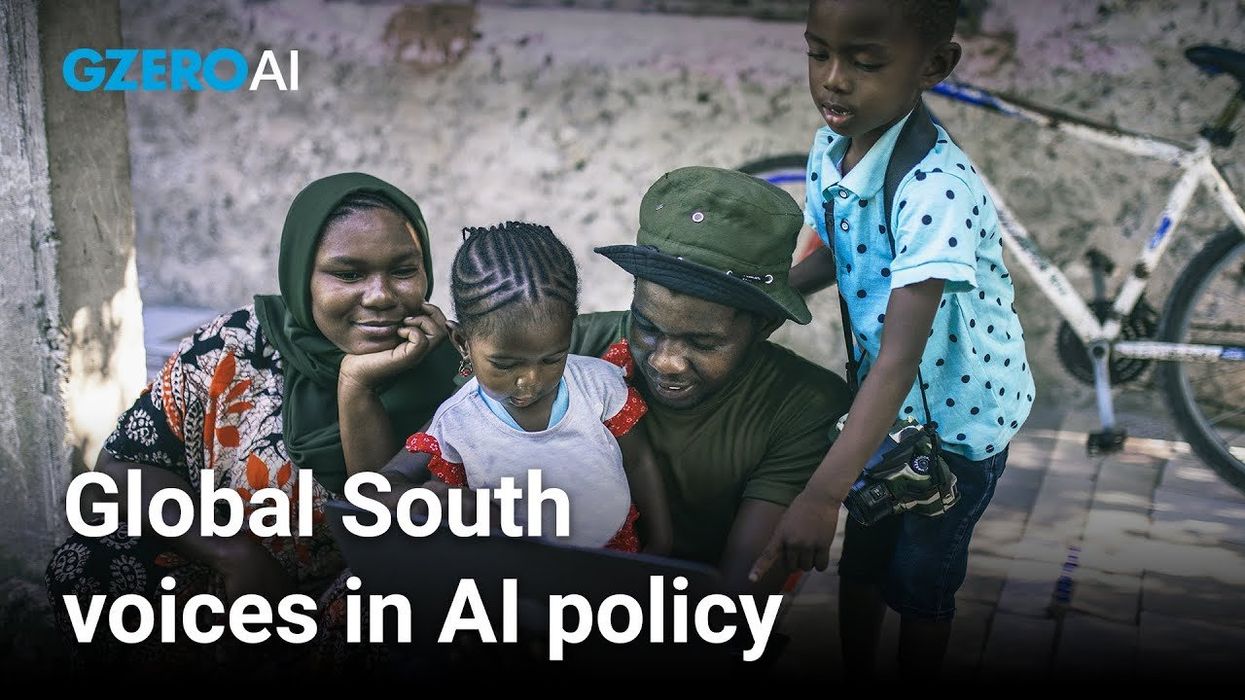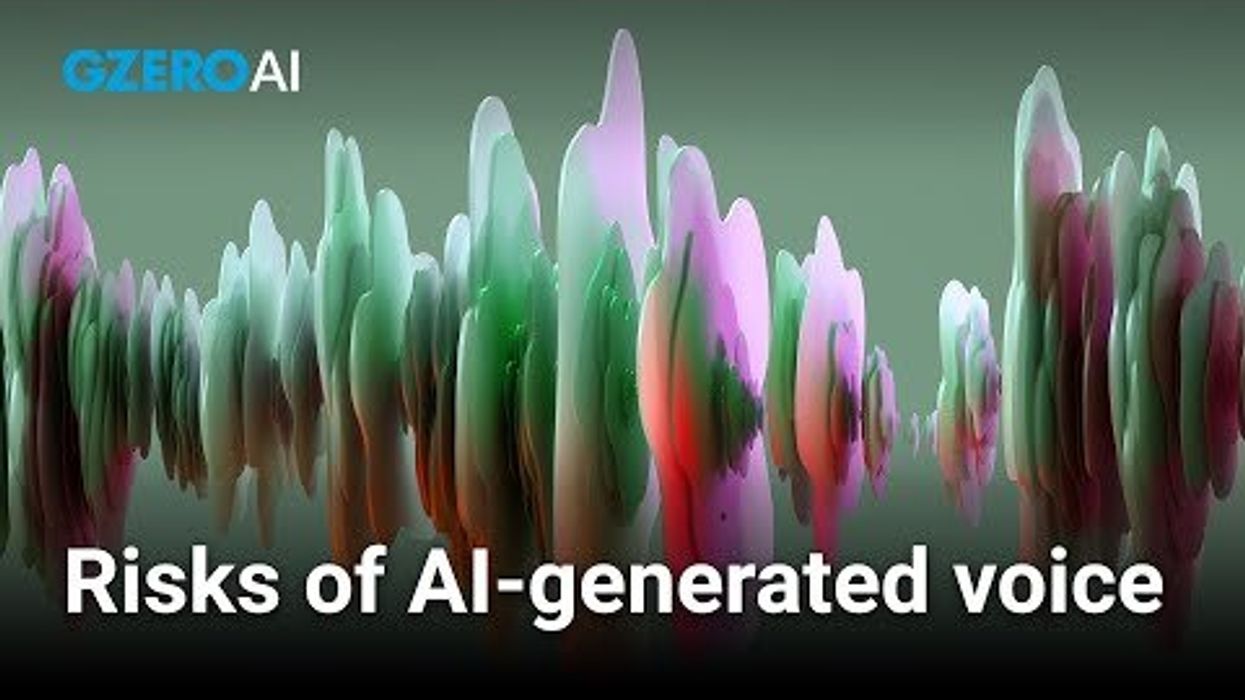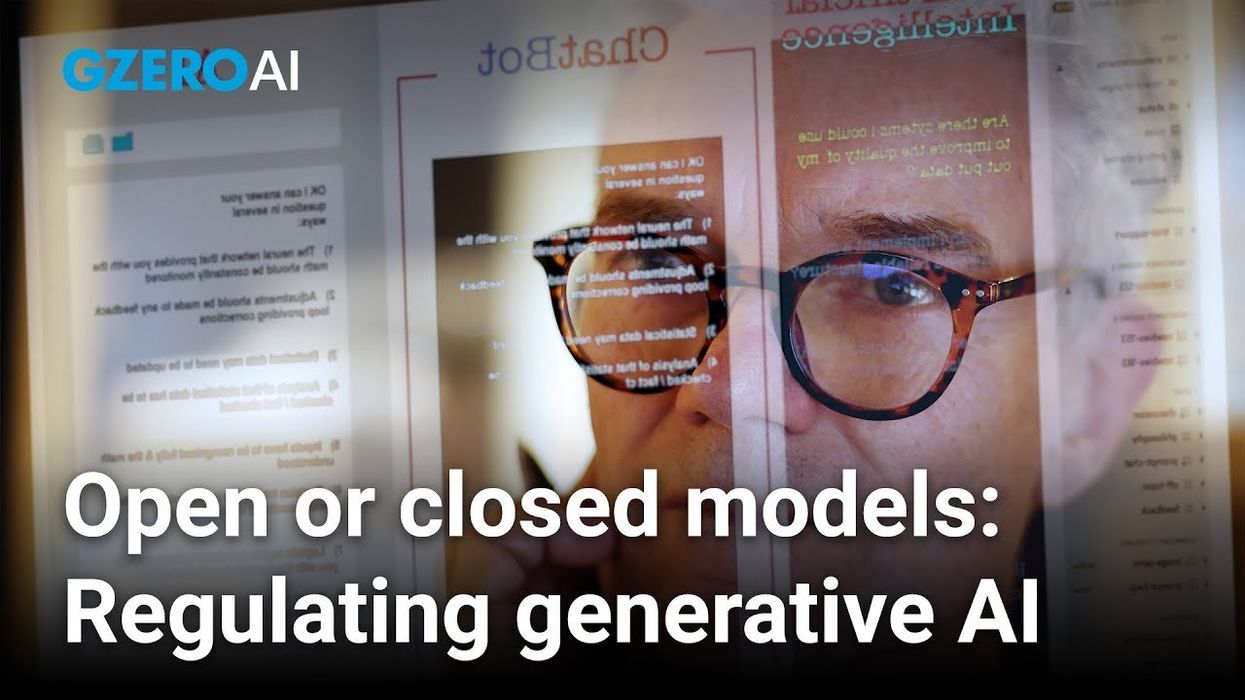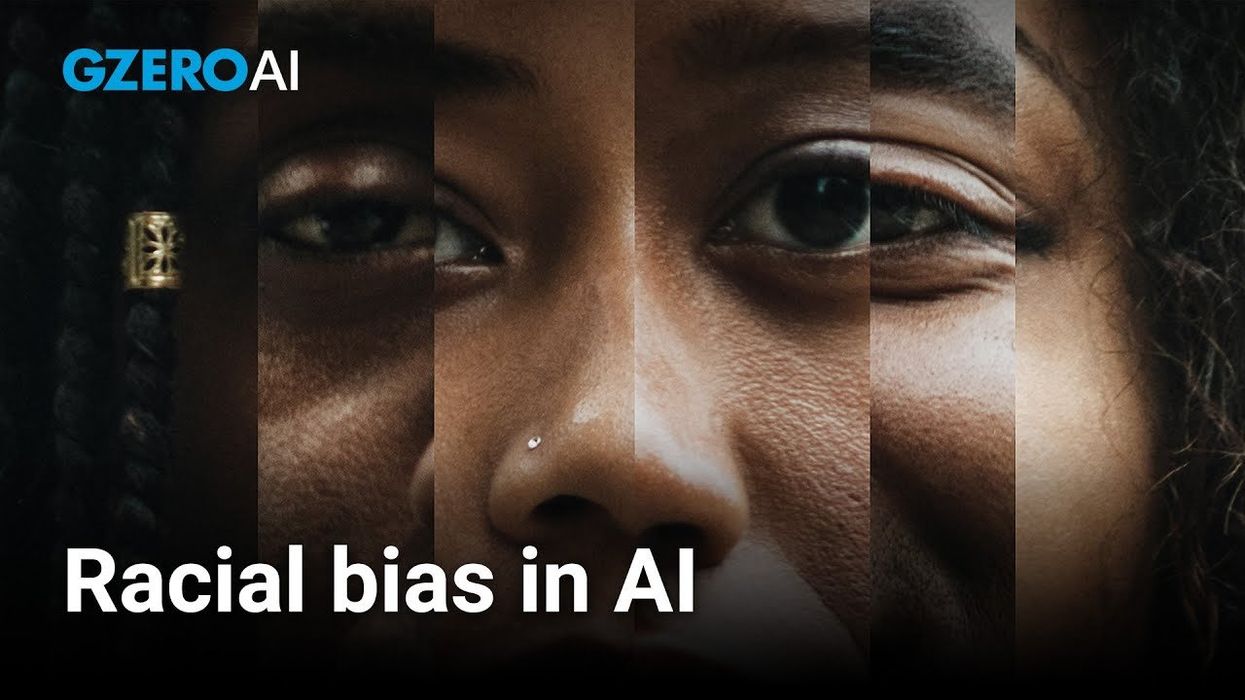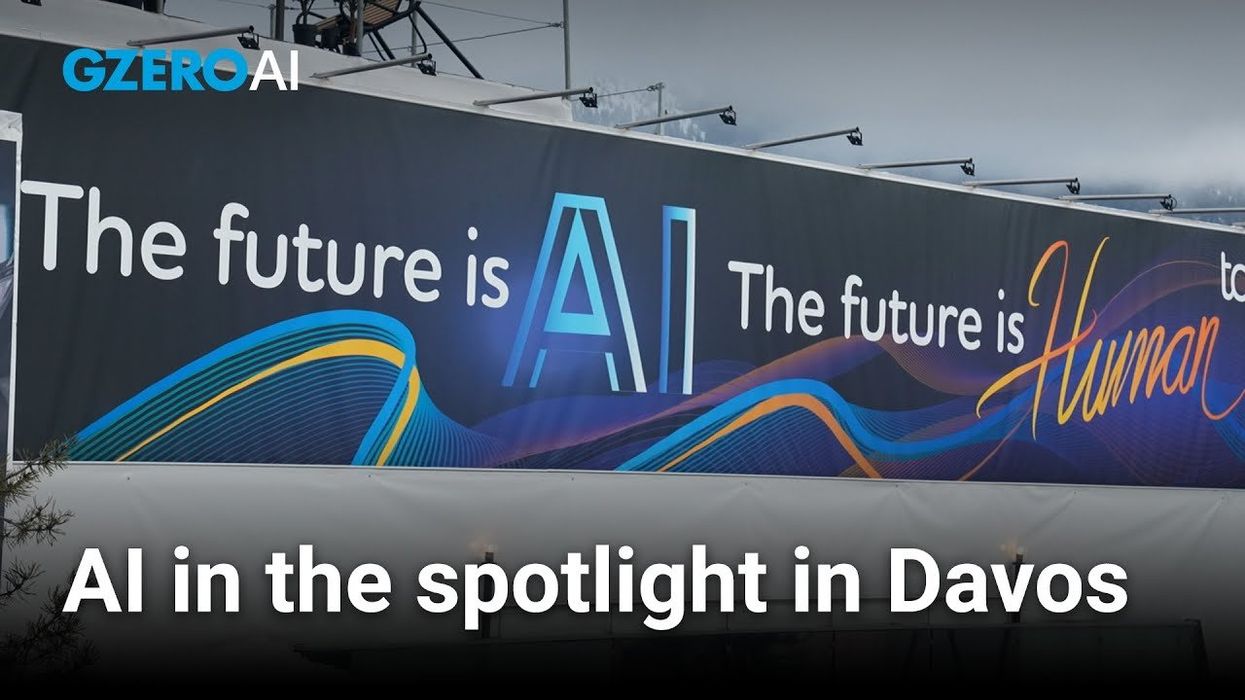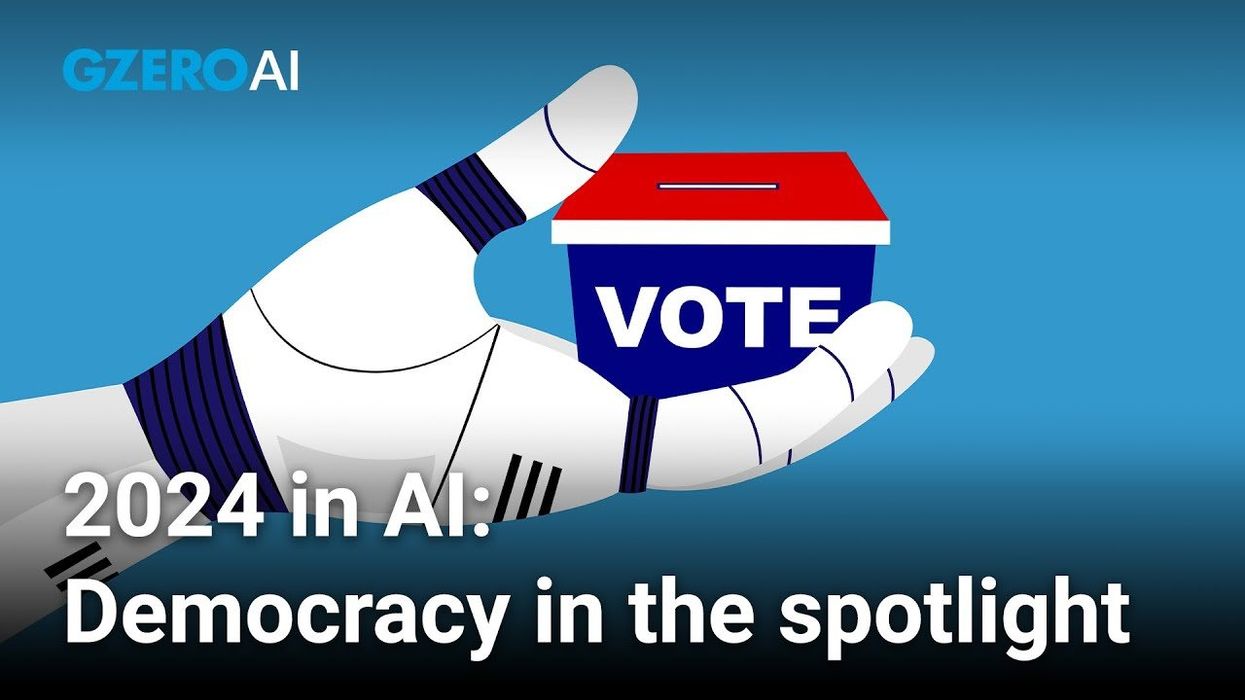VIDEOSGZERO World with Ian BremmerQuick TakePUPPET REGIMEIan ExplainsGZERO ReportsAsk IanGlobal Stage
Site Navigation
Search
Human content,
AI powered search.
Latest Stories
Sign up for GZERO Daily.
Get our latest updates and insights delivered to your inbox.
Global Stage: Live from Davos
WATCH
Marietje Schaake
Video Columnist
Marietje Schaake is a senior advisor on technology, policy, and geopolitics with a public sector focus. She is a host of GZERO Media's video series "GZERO AI" and previously hosted GZERO's series “Cyber In 60 Seconds” about major issues in technology and policy. She also currently serves as the international policy director of the Cyber Policy Center at Stanford University and as president of the Cyber Peace Institute. As a member of European Parliament from 2009 to 2019 from the Netherlands, Marietje has been a top figure shaping Europe's policies on technology, trade, and foreign affairs. Among her achievements, she helped to launch “net neutrality” policies now in force across Europe, and she advanced several initiatives to promote digital freedoms, including stricter export controls for cybersurveillance technology, and new policies for e-commerce and cybersecurity. Marietje was also part of EU delegations to the US, Iran, and the Arabian Peninsula, as well as the chief observer to the election mission in Kenya. She was named one of the “Most Influential Europeans” in Politico's Class of 2017.

